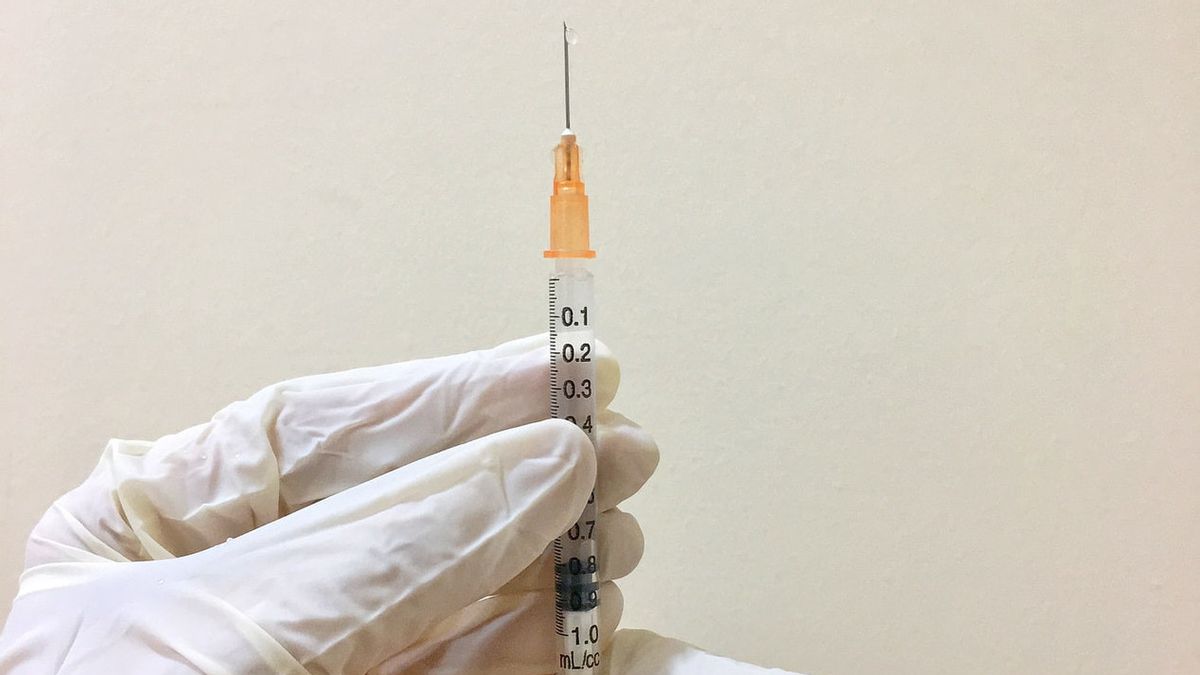JAKARTA - After more than a year of the first chemical castration sentence handed down by the Mojokerto District Court in August 2019, a government regulation regulating the implementation of chemical castration was promulgated.
The convict for chemical castration, Muhammad Aris, who sexually abused nine children, is still serving a corporal punishment, has not yet served a sentence of castration.
The execution of chemical castration has not been carried out because there is no legal umbrella for the public prosecutor as the executor.
So how is the implementation of chemical castration against child predators carried out according to Government Regulation No. 70/2020 signed by President Joko Widodo on December 7, 2020?
The PP regarding the procedure for implementing chemical castration, installing electronic detection devices, rehabilitation and announcing the identity of perpetrators of sexual violence against children is a derivative rule from Law No. / 2002 on Child Protection.
The act of chemical castration according to the PP is the administration of chemical substances through injection or other methods carried out on perpetrators who have been convicted of committing violence or threats of violence to children.
Chemical castration accompanied by rehabilitation is intended to suppress excessive sexual desire. This punishment cannot be imposed on the offender who is still a child.
Chemical castration and installation of electronic detectors are carried out after the verdict has permanent legal force and for a maximum period of two years.
As for the execution time, the convict will get a notification of the implementation of castration no later than nine months before the basic sentence has been served.
For the case of Muhammad Aris, who once admitted that he preferred the death penalty to castration, he would receive this notification no later than nine months before he was finished serving a 12-year prison sentence.
Then within seven working days after the notification, the public prosecutor coordinates with the relevant parties for a clinical assessment.
The clinical assessment stage is carried out by clinical and psychiatric interviews, physical examinations and supporting examinations by a team consisting of medical personnel and psychiatrists.
Through this clinical assessment, the fate of the perpetrator of sexual violence against children is determined whether or not it is appropriate to be subjected to chemical castration.
If the perpetrator is declared fit to be castrated, a maximum of seven days from the statement, a doctor at a government-owned hospital or a designated regional hospital on the order of the prosecutor will carry out the castration of the child predator.
Meanwhile, for a convict who is declared unfit to be castrated does not mean that he can immediately feel relieved. The castration procedure was postponed for a maximum of six months and during the delay another clinical assessment was performed.
If in a re-clinical assessment it is still declared unfit to be castrated, then the prosecutor will convey the matter to the court which decides the case.
Implementers and budgetsThe PP clearly regulates doctors who will execute castration sentences for perpetrators of sexual violence.
However, in the case of Muhammad Aris, the Indonesian Doctors Association (IDI) at that time refused to become the executor because it was deemed not in accordance with the principles and code of medical ethics.
IDI, based on the fatwa of the Honorary Council of Medical Ethics (MKEK) Number 1 of 2016 concerning Chemical Castration and the Indonesian medical code of ethics, previously stated that the implementation of chemical castration punishment does not involve doctors as executors.
In addition, the rejection of IDI is also based on scientific reasons and scientific evidence of chemical castration does not guarantee loss or reduction in sexual desire and the potential for sexual violence by the perpetrator.
It seems that there is still a need to find a middle ground between the legal regulations and the code of ethics in chemical castration executions, for example, by training officers to perform chemical castration.
In addition, the resources to carry out the punishment are considered expensive because in addition to chemical castration, a budget is required for psychiatric rehabilitation, social rehabilitation and medical rehabilitation for chemical castration convicts.
The Institute for Criminal Justice Reform (ICJR) said that the practice of castration in other countries has proven that the preparation and construction of an appropriate chemical castration treatment system requires a lot of resources and is expensive.
Meanwhile, the PP does not specify and only mentions the budget for the implementation of chemical castration from the APBN, APBD and other sources.
ICJR Executive Director Erasmus Napitulu said the government through the relevant ministries had never provided an explanation of the description of the funding that had to be provided to implement this expensive system.
According to him, the existence of PP 70/2020 seemed as if the state had declared itself ready with the new budget burden used for punishing perpetrators.
While on the other hand, he said the victim was still screaming that he had to bear the cost of his own protection and recovery. The budget for the recovery and protection of victims such as the Witness and Victim Protection Agency (LPSK) continues to be trimmed.
Likewise, the Indonesian Family Planning Association (PKBI) also considered that if it focused too much on the perpetrators, eventually the recovery of the victims would be forgotten. In fact, the recovery of victims is more important.
PKBI Public Policy Advocate and Specialist Riska Carolina argues that instead of responding to violence with violence, it would be better if the state shows its seriousness in overcoming sexual violence more comprehensively, such as the bill on the elimination of sexual violence.
Although he admits that the discussion until the ratification of the bill still has a long way to go.
Apart from the debate that still surrounds the implementation of chemical castration punishment for the perpetrator of sexual violence against children, there is still about 10 years left to find out how the story of a prisoner in Mojokerto will end.
The English, Chinese, Japanese, Arabic, and French versions are automatically generated by the AI. So there may still be inaccuracies in translating, please always see Indonesian as our main language. (system supported by DigitalSiber.id)











